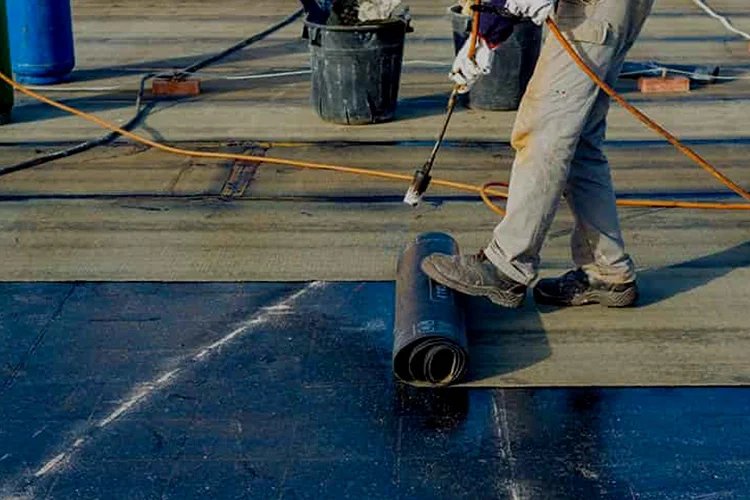Waterproofing is often an neglected aspect of home and construction maintenance, yet it plays a crucial role in safeguarding your assets and boosting property value. When water infiltrates structures, it can lead to extensive damage, costly repairs, and diminished market appeal. For homeowners and property managers alike, understanding the significance of waterproofing is critical for maintaining the integrity of a property and protecting its value over time.
In this article, we will examine how effective waterproofing techniques can not only avoid disasters but also lead to long-term savings and improved energy efficiency. From disproving common waterproofing myths to examining the differences between indoor and outdoor methods, we will provide you with a detailed guide on how to properly protect your property. By ensuring that your home is adequately waterproofed, you not only preserve its structural integrity but also draw in potential buyers and boost its market worth.
The Importance of Waterproofing for Property Value
Moisture proofing is a crucial element in upholding and enhancing the value of any property. A moisture-proofed home or building is not as susceptible to moisture damage, which can lead to expensive fixes and structural issues over time. When potential buyers evaluate a home, the condition of the cellar, top, and siding can significantly influence their decision. A well-protected home shows to prospective buyers that it has been cared for and is a sound investment.
Ignoring moisture proofing can lead to serious long-term repercussions, including mold growth, compromised base structures, and compromised structural integrity. These problems not only lower a home’s value but can also create a adverse perception that extends beyond the property boundaries. Property owners who prioritize waterproofing are more unlikely to face major repair bills, making their asset more protected. This proactive approach can substantially enhance a home's appeal.
In addition, waterproofing contributes to energy efficiency, as it helps to maintain a stable indoor environment. Homes that are less prone to moisture problems require less energy for heating and temperature control, appealing to environmentally conscious buyers. This twofold advantage of safeguarding the home and reducing utilities creates a powerful case for investing in moisture proofing as a means of increasing real estate worth both in the short and long term.
Cost-Effective Waterproofing Solutions Options
As you think about waterproofing your spaces, cost and efficiency are key factors. There are a variety of affordable solutions to choose from that can help defend your property from water damage without breaking the bank. For instance, applying waterproof coatings or sealants to your basement areas and floors can be an inexpensive method of preventing moisture infiltration. These products are created to be simple to use and can often be completed as a do-it-yourself task, saving you on expenses while still ensuring a solid defense.
Another affordable approach is to set up proper drainage systems around your home. Setting up French drains or gutters can successfully redirect water away from your home's base, significantly diminishing the risk of flooding and moisture issues. This proactive measure not only improves the longevity of your property but also elevates its value by promoting a dry and stable environment. Additionally, https://aluneed.ca/ of drainage systems can prevent larger, costly repairs in the future.
For homeowners looking to address waterproofing challenges in areas like restrooms or cooking areas, using specialized waterproofing products made for these spaces can be both economical and practical. Products like waterproof membranes and adhesives can form effective barriers against moisture. Furthermore, by choosing quality over amount, and selecting reliable products, you can secure lasting protection that will ultimately contribute to upping your property value.
Determining the Right Waterproofing Method
Determining the ideal waterproofing technique for your home can significantly affect its lifespan and equity. Begin by assessing the individual needs of your space, considering elements such as the site, style of building, and existing moisture issues. For cellars, interior techniques like sealers and drainage systems may be fitting, while outside choices like barriers and finishes could be more suitable for basement walls. Prioritizing the distinct characteristics of your home will assist ensure you arrive at an educated choice.
Next, weigh whether you favor a DIY approach or employing a professional. Understanding the pros and cons of each choice is essential. DIY approaches can cut money, but they demand dedication and know-how, and improperly done work can cause more serious issues. On the flip side, expert waterproofing can give peace of mind and assurance, making sure the job is done properly and in a timely manner. Weighing your own expertise against the possible issues is essential in this decision-making exercise.
Finally, do extensive study on moisture proofing materials. Seek out reliable and high-quality materials that suit your environment and type. Consider the company's reputation and coverage offerings when deciding on products. A knowledgeable decision on materials will not only improve the success of your damp proofing efforts but also increase to the complete resilience and value of your building in the long term.

